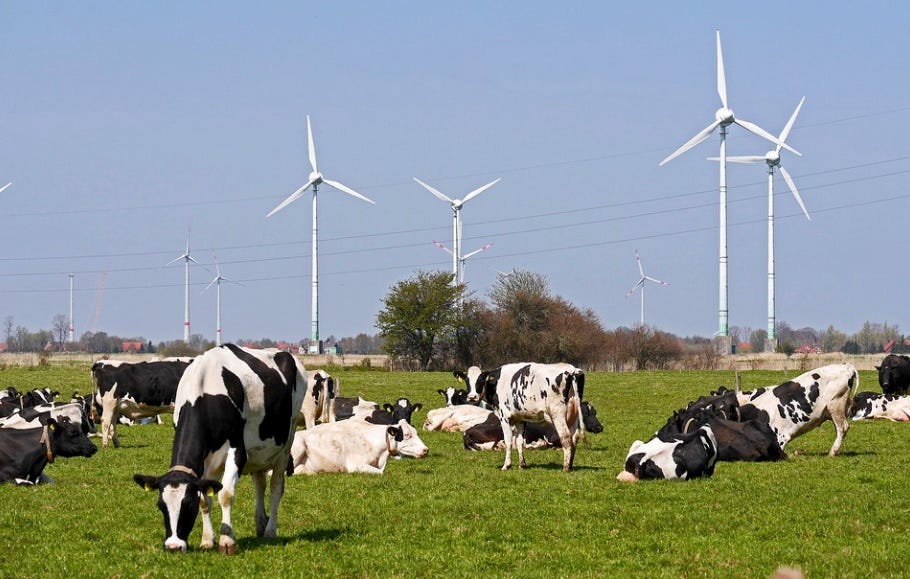Seaweed supplement set to slash cow pollution
Just ounces of the plentiful plant can cure cattle's methane menace
(A native of England, Matthew Diebel is a veteran journalist who has worked at NBC News, Time, USA Today and News Corp., among other organizations. Having spent his childhood next to one of the world's fastest bodies of water, he is particularly interested in tidal energy.)
Mmmmm. That McDonald’s (MCD) hamburger is mighty tasty. As is the McFlurry dessert you had with it.
But did you know that the flavorful fast-food treats are also a major methane menace? Why, because a large part of them come from cattle, which — to put it plainly — belch, fart and poop about 5% of global greenhouse gas emissions. That’s about twice the pollution caused by the world’s aircraft.
And here’s another eye-popping statistic: At about 58 million tons of carbon, McDonald’s produces more emissions than Norway, reports Bloomberg.
So, what to do about it? In a small way, the world’s largest restaurant chain is trying to help by introducing the McPlant burger, a Beyond Meat product now being tested in 600 U.S. locations.
But it’s going to take much more than that — and to cure the emissions from the Burger Kings (QSR) and Wendy’s (WEN) and, for that matter, the steak and shakes on your table.
Which is where seaweed comes in. Yes, a Swedish startup called Volta Greentech is to build a factory to make seaweed supplements that will reduce methane emissions from cows by about 80% and have a capacity of 50 tons a year to feed between 3000 to 5000 animals. The company’s supplement, Volta Greentech co-founder Fredrik Akerman told Bloomberg, is based on the red seaweed Asparagopsis Taxiformis, which helps block one of the enzymes needed by methane-producing bacteria in cows’ digestive systems.
The knowledge is not new. For instance, researchers at the University of California at Davis last year published a paper in which they demonstrated that only three ounces of seaweed in a cow’s daily diet reduced their methane output by 82% without affecting their weight or milk output.
Another advantage: Seaweed is plentiful and organic. And it can be grown commercially, as demonstrated on Canada’s Prince Edward Island, where farmer Joe Dorgan, according to CBS News, has long planted seaweed seeds on the shores while also discovering that the Asparagopsis Taxiformis variety now being used by Volta Greentech in Sweden was particularly effective in reducing cattle emissions.
Soon you’ll be able to eat your Big Mac with less guilt.

